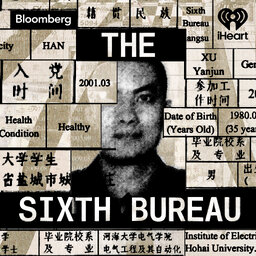Are NGOs the tools of foreign agents?
They're supposed to help people across the planet -- so why doesn't everyone trust NGOs?
Learn more about your ad-choices at https://www.iheartpodcastnetwork.com
In 1 playlist(s)
Stuff They Don't Want You To Know
From UFOs to psychic powers and government conspiracies, history is riddled with unexplained events.…Social links
Follow podcast
Recent clips

Introducing: The Sixth Bureau
00:58

What is AI Psychosis?
1:23:50

Listener Mail: Lasers, Barack Obama on Aliens, and More
1:00:09
 Stuff They Don't Want You To Know
Stuff They Don't Want You To Know